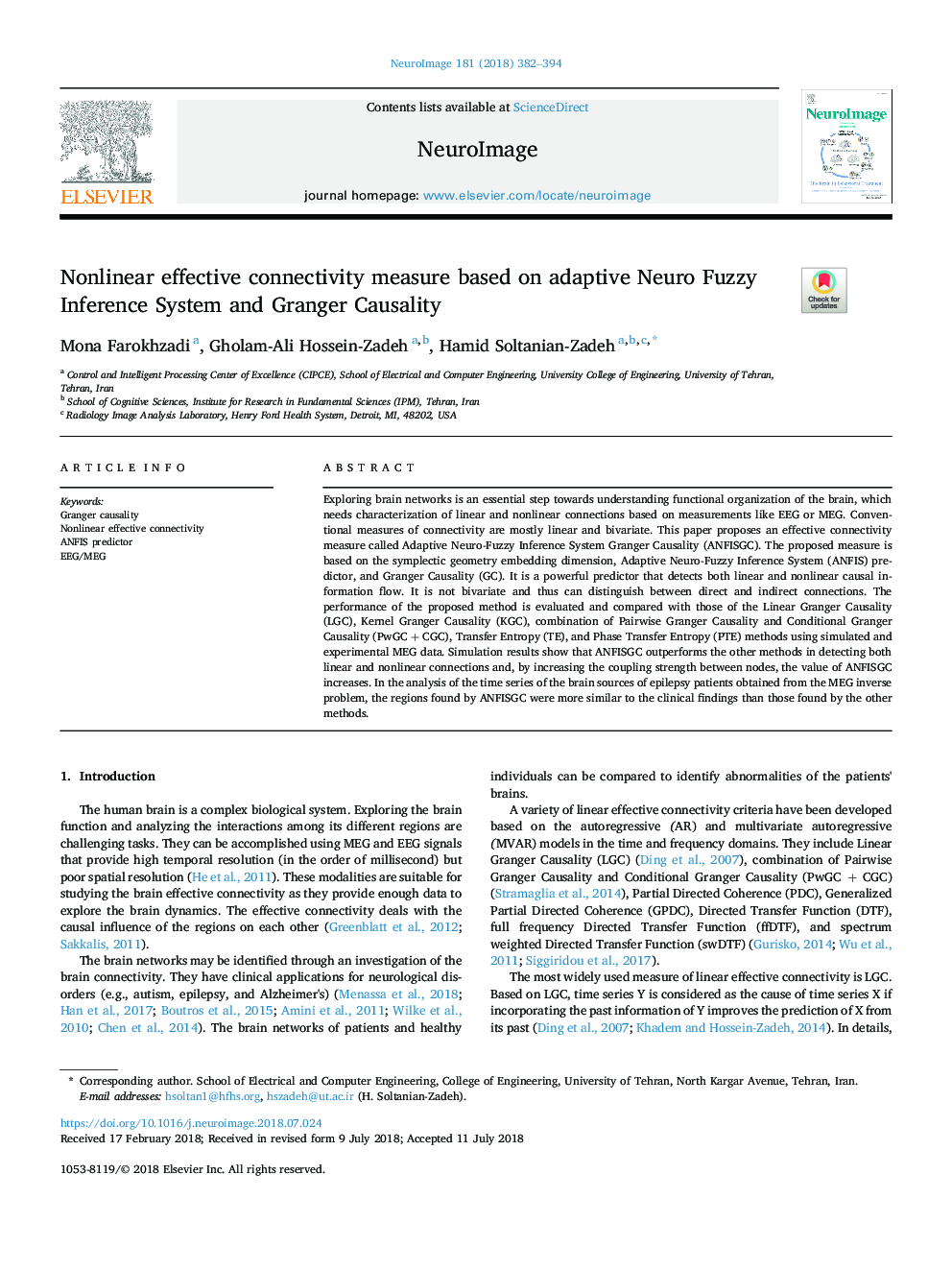| کد مقاله | کد نشریه | سال انتشار | مقاله انگلیسی | نسخه تمام متن |
|---|---|---|---|---|
| 8686643 | 1580830 | 2018 | 13 صفحه PDF | دانلود رایگان |
عنوان انگلیسی مقاله ISI
Nonlinear effective connectivity measure based on adaptive Neuro Fuzzy Inference System and Granger Causality
ترجمه فارسی عنوان
اندازه گیری اتصال غیرمستقیم موثر بر اساس سیستم استنباط فازی تطبیقی و علیت گرنجر
دانلود مقاله + سفارش ترجمه
دانلود مقاله ISI انگلیسی
رایگان برای ایرانیان
کلمات کلیدی
موضوعات مرتبط
علوم زیستی و بیوفناوری
علم عصب شناسی
علوم اعصاب شناختی
چکیده انگلیسی
Exploring brain networks is an essential step towards understanding functional organization of the brain, which needs characterization of linear and nonlinear connections based on measurements like EEG or MEG. Conventional measures of connectivity are mostly linear and bivariate. This paper proposes an effective connectivity measure called Adaptive Neuro-Fuzzy Inference System Granger Causality (ANFISGC). The proposed measure is based on the symplectic geometry embedding dimension, Adaptive Neuro-Fuzzy Inference System (ANFIS) predictor, and Granger Causality (GC). It is a powerful predictor that detects both linear and nonlinear causal information flow. It is not bivariate and thus can distinguish between direct and indirect connections. The performance of the proposed method is evaluated and compared with those of the Linear Granger Causality (LGC), Kernel Granger Causality (KGC), combination of Pairwise Granger Causality and Conditional Granger Causality (PwGCÂ +Â CGC), Transfer Entropy (TE), and Phase Transfer Entropy (PTE) methods using simulated and experimental MEG data. Simulation results show that ANFISGC outperforms the other methods in detecting both linear and nonlinear connections and, by increasing the coupling strength between nodes, the value of ANFISGC increases. In the analysis of the time series of the brain sources of epilepsy patients obtained from the MEG inverse problem, the regions found by ANFISGC were more similar to the clinical findings than those found by the other methods.
ناشر
Database: Elsevier - ScienceDirect (ساینس دایرکت)
Journal: NeuroImage - Volume 181, 1 November 2018, Pages 382-394
Journal: NeuroImage - Volume 181, 1 November 2018, Pages 382-394
نویسندگان
Mona Farokhzadi, Gholam-Ali Hossein-Zadeh, Hamid Soltanian-Zadeh,
